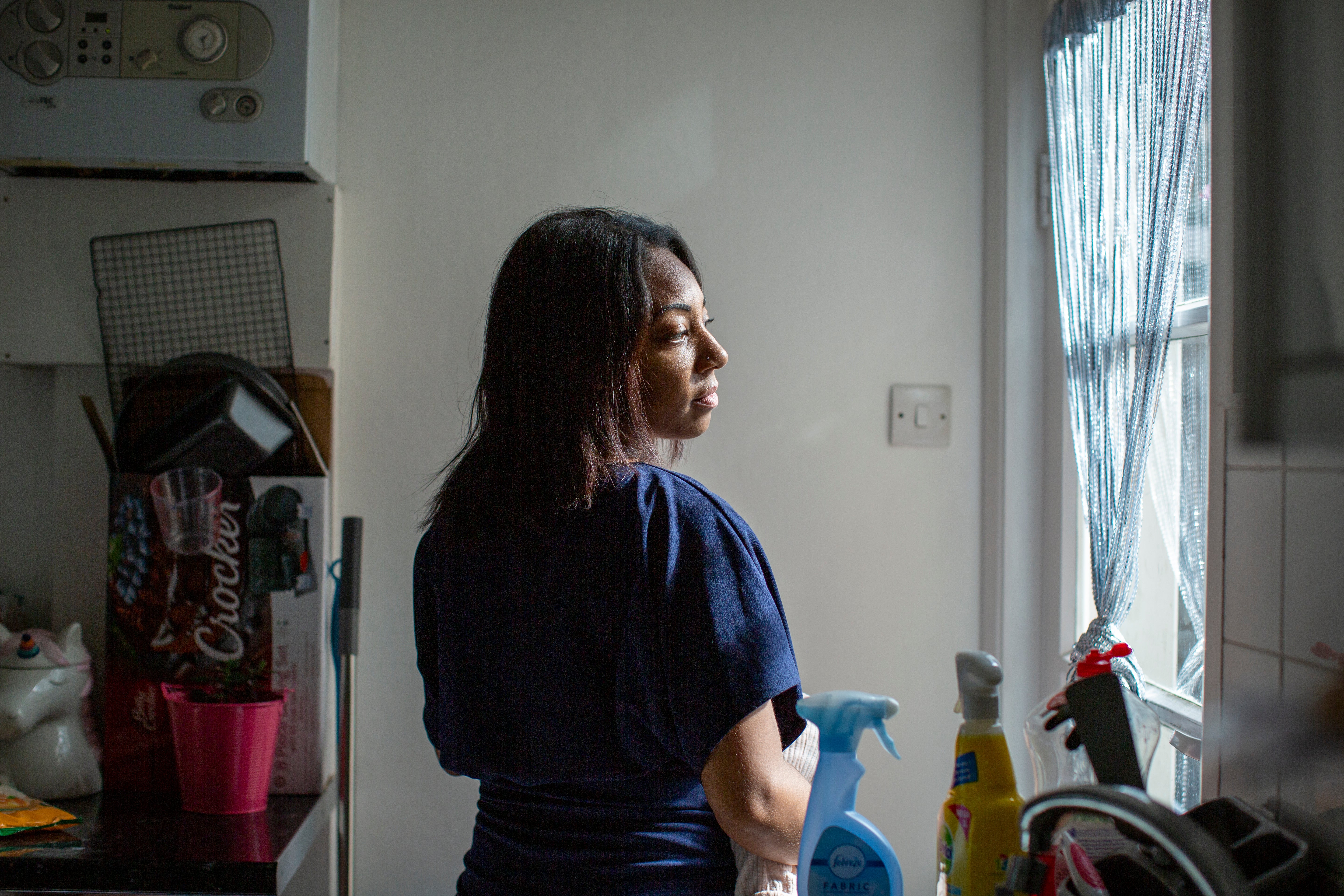Housing ‘emergency’ threatens one in three adults in UK, charity warns
Shelter says there is ‘blatant discrimination’ in UK housing system

Your support helps us to tell the story
From reproductive rights to climate change to Big Tech, The Independent is on the ground when the story is developing. Whether it's investigating the financials of Elon Musk's pro-Trump PAC or producing our latest documentary, 'The A Word', which shines a light on the American women fighting for reproductive rights, we know how important it is to parse out the facts from the messaging.
At such a critical moment in US history, we need reporters on the ground. Your donation allows us to keep sending journalists to speak to both sides of the story.
The Independent is trusted by Americans across the entire political spectrum. And unlike many other quality news outlets, we choose not to lock Americans out of our reporting and analysis with paywalls. We believe quality journalism should be available to everyone, paid for by those who can afford it.
Your support makes all the difference.Britain’s housing “emergency” threatens one in three adults, according to new research.
The YouGov research, published by Shelter, questioned 13,000 people in detail about their home and housing experiences - and concluded that there is “blatant discrimination” in the UK’s housing system.
The charity is calling for urgent action to prevent more lives being “ruined” by poor living conditions.
It indicates that 17.5 million adults (34 per cent) do not have a safe or secure home, with that figure rising to 22 million when children are factored in.
The findings also reveal that people from ethnic minority backgrounds are considerably more likely to not have a safe or secure home than White people, with more than half (57 per cent) of black adults and 48 per cent of Asian adults affected, compared with a third of white adults.
Disabled people are also harder hit, with the research showing that 54 per cent of people with a significant disability (1.8 million) do not have a safe or secure home, compared with 30 per cent of people without a disability.
The findings also show that two thirds (65 per cent) of single mothers are not in a safe or secure home, compared with 37 per cent of two-parent households. Meanwhile 40 per cent of gay or lesbian and 49 per cent of bisexual people are impacted by the housing emergency, compared with 32 per cent of heterosexual people, according to the findings.
Single mother Krystalrose, 27, a black woman, privately rents a one bed flat in London with her daughter. She became homeless when pregnant and lived in a hostel before moving into her current home.
There is severe mould and damp on the walls, but it is the only property Krystalrose can afford.

“I pay good money for this place — I can’t afford a big food shop anymore; I really have to watch how much I eat. I thought for the amount of money it was going to be a proper home,” she said.
“I’ve tried to make it feel like one, but it’s not. The mould has ruined my daughter’s cot and all our clothes. We’re living out of bags. I’m asthmatic and we have both become ill because of it.”
Krystalrose said she was on antidepressants because of the stress, adding: “All I want is a home where we can feel safe and comfortable. The simple things like a wardrobe to pack your clothes away; a living room with a sofa to sit on; not having to share a bedroom.
“My daughter doesn’t know what that feels like. It’s like our lives can’t move forward.”
The research, which used eight criteria to measure if someone has access to a safe and secure home, including whether their home is unaffordable, unfit or unstable and if they have been subject to discrimination, reveals that 11.8 million people (23 per cent) are living in homes with significant damp, mould and condensation, or cannot keep warm in winter.
Unaffordability and insecurity are two other key issues, with four million people reporting that they regularly cut back on essential items such as food and heating to pay their housing costs, Shelter said.
And another 4 million people (8 per cent) say they are worried about losing or being asked to leave their current home, which Shelter says is largely driven by private renters who live in the least secure housing.
The report concludes that in order to end the escalating housing emergency, made worse by the pandemic, the government must build at least 90,000 good-quality social homes a year.
Lucy Powell, Labour’s shadow housing secretary, said the pandemic had revealed the “deep inequalities” in Britain’s housing system and accused ministers of a “decade of neglect and failure on housing”.
“Instead of an ambitious plan to deal with the housing emergency, ministers are weakening protections for people with Covid-related rent arrears, kicking renters rights and social housing reform into the long grass, and diluting measures to build more affordable homes to rent and buy,” she added.
Polly Neate, chief executive of Shelter, said: “Decades of neglect have left Britain’s housing system on its knees. A safe home is everything, yet millions don’t have one. Lives are being ruined by benefit cuts, blatant discrimination and the total failure to build social homes.”
An MHCLG spokesperson said: “It is unacceptable for people to live in unsafe accommodation and that is why we have given councils stronger tools to crack down on rogue landlords, including fines of up to £30,000 and banning orders.”
They said the government had also announced reforms to support tenants, including the Charter for Social Housing Residents, and that it was providing over £750m this year to tackle homelessness and rough sleeping and are investing over £12bn in affordable housing.”



Join our commenting forum
Join thought-provoking conversations, follow other Independent readers and see their replies
Comments